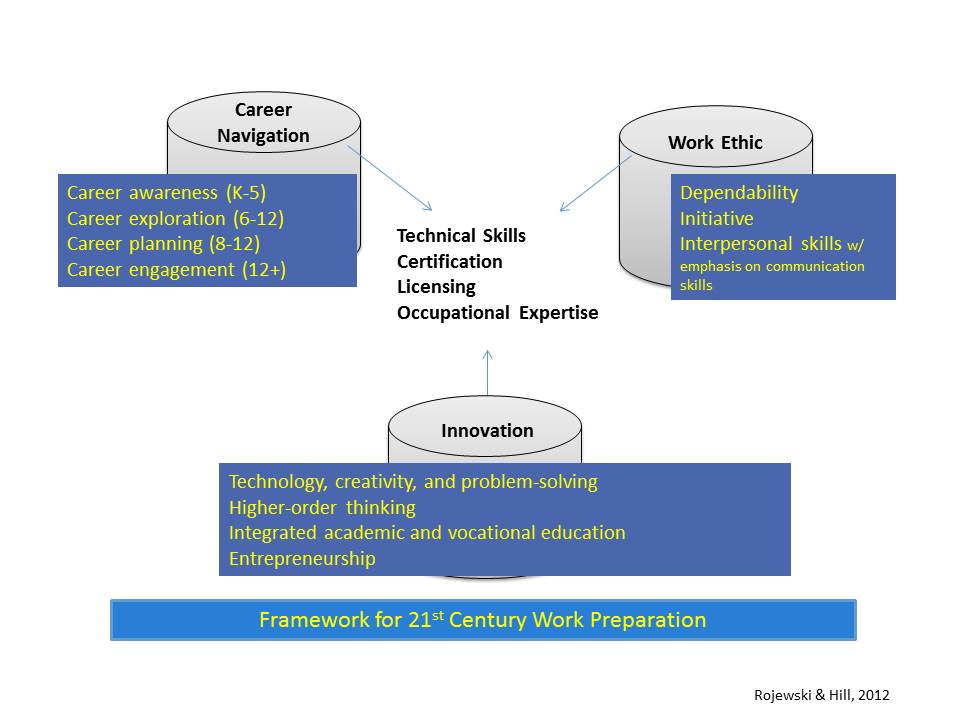Workforce Development Model

Work in the twenty-first century presents many challenges for those involved in preparing persons for work. The technical skill set for many jobs changes rapidly, new jobs emerge, and some types of work are becoming obsolete. The evolving capabilities of intelligent machines and computers increasingly provides options for enhancing worker productivity or replacing human workers all together.
In 2012 Rojewski and Hill developed a research-based model to guide preparation for work. This framework emerged from concern about how to prepare persons for jobs that don't even exist at the time preparation is taking place. Three key componentsof this model -- career navigation, work ethic, and innovation -- have been shown to have enduring value even as technical and professional skills are ever changing and evolving.
A version of this model was published in Career and Technical Education Research, 39(2), pp. 137-150, DOI: 10.5328/cter39.2.137 and the title of the article was Positioning Research and Practice in Career and Technical Education: A Framework for College and Career Preparation (Rojewski & Hill, 2014). The article is available here.
As reflected by the model, all preparation for work should explicitly include career navigation, work ethic, and innovation. Other types of training related to technical skills, certification, professional expertise, and specific occupational preparation are still important, but the themes of the model should always be included. Technical and professional content often changes, but the need for navigating one's career, exhibiting work ethic attributes, and being innovation and creative will always be relevant.

